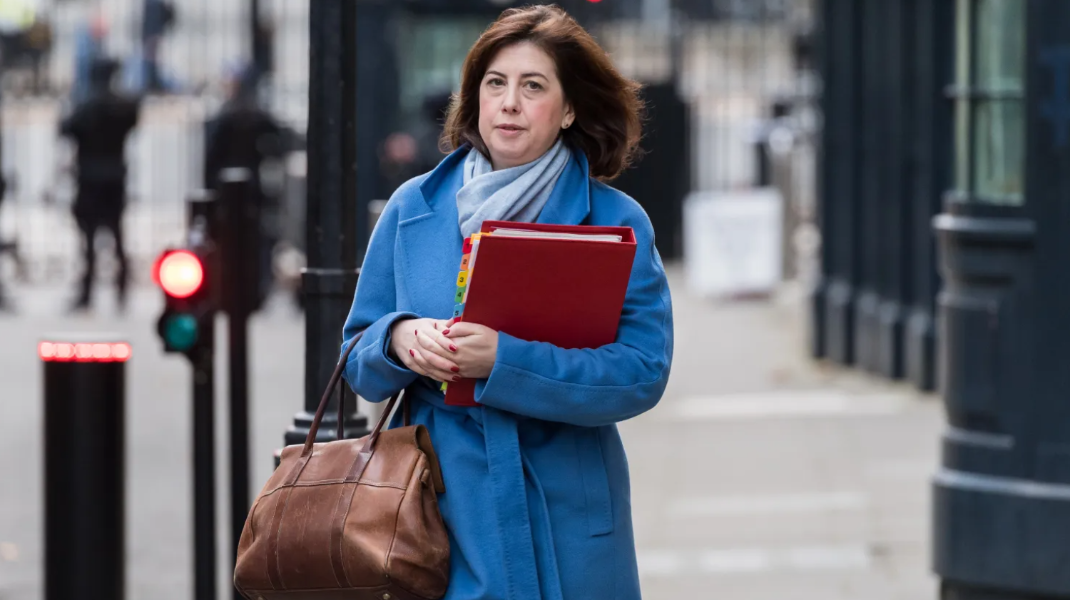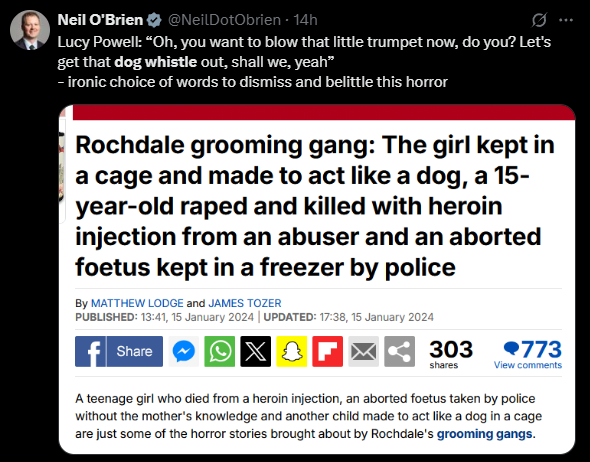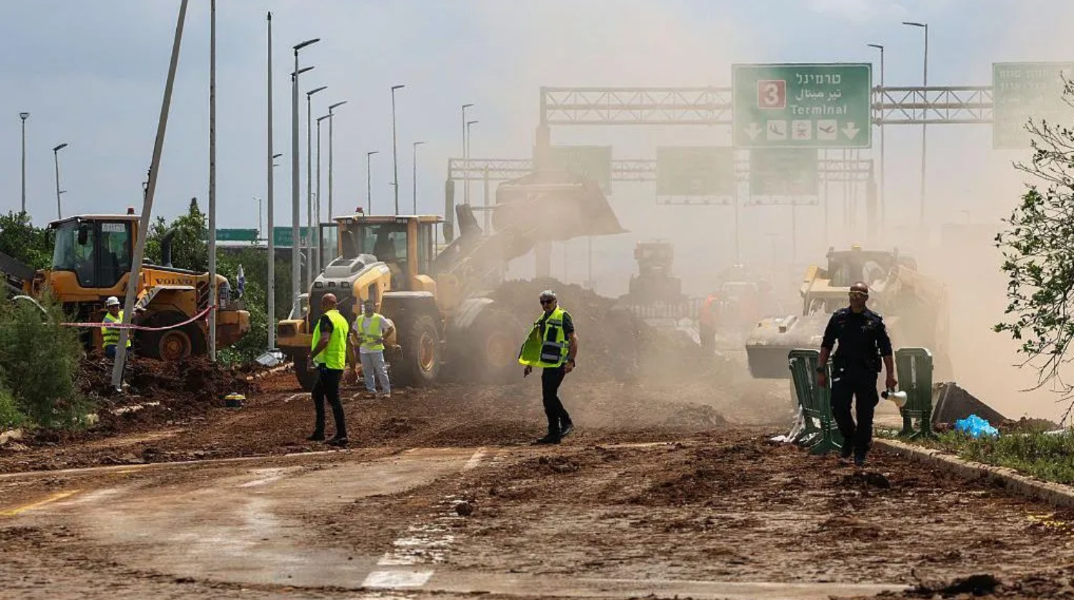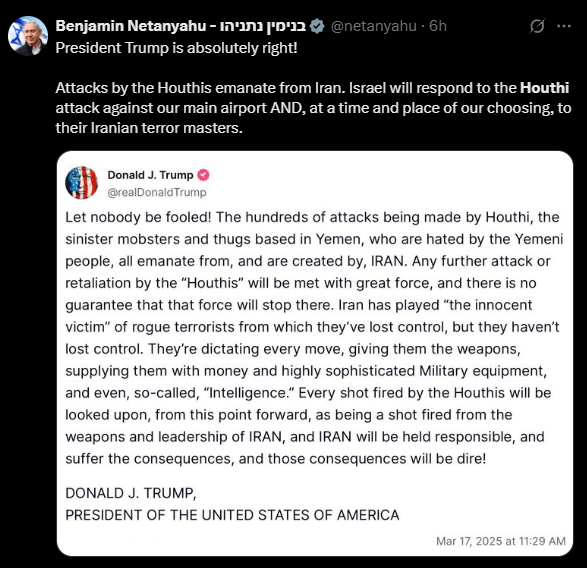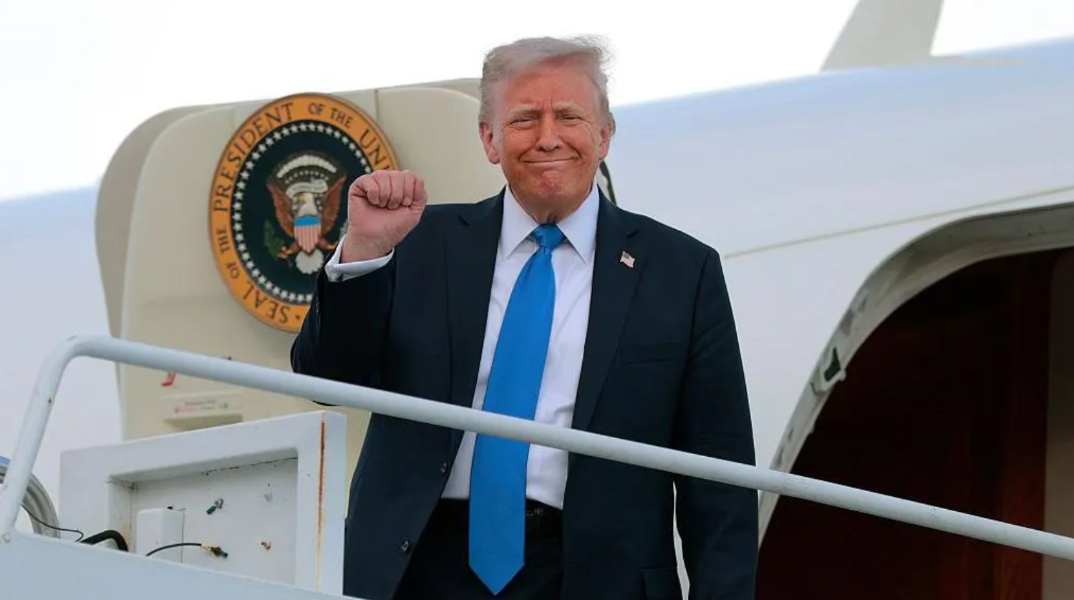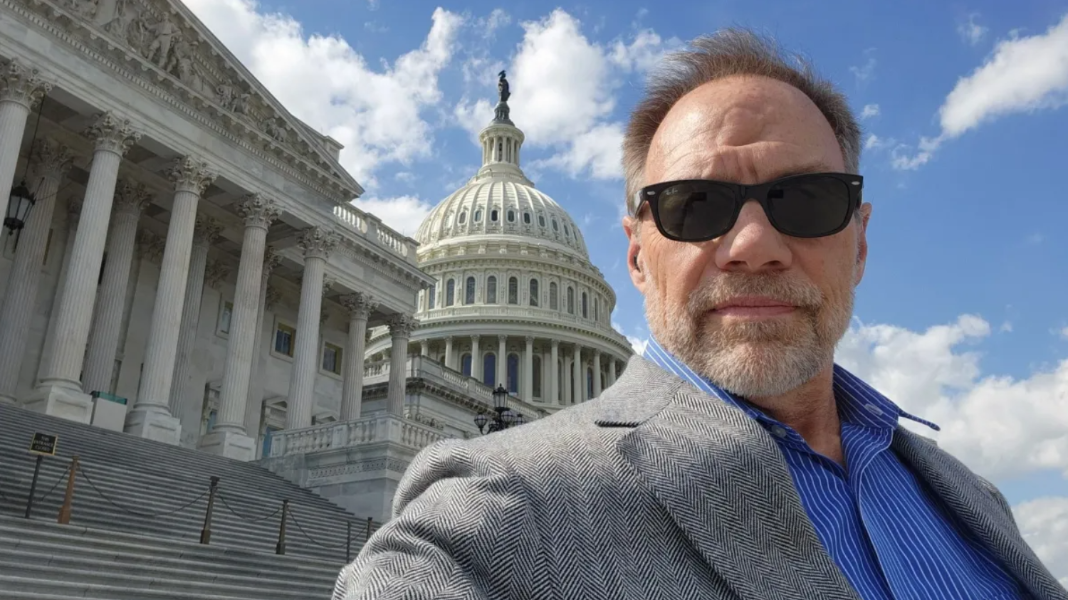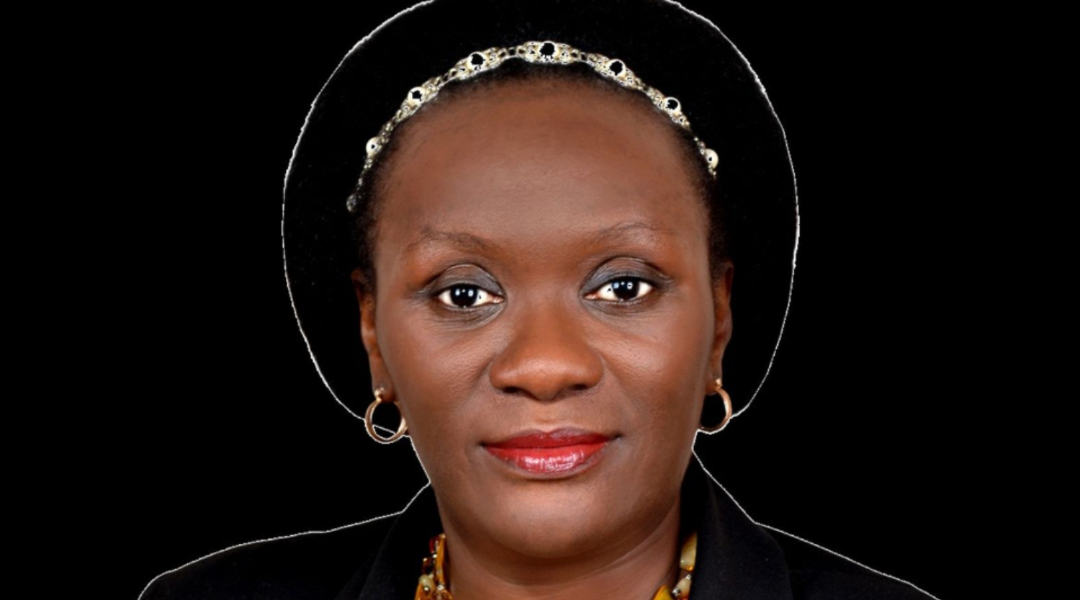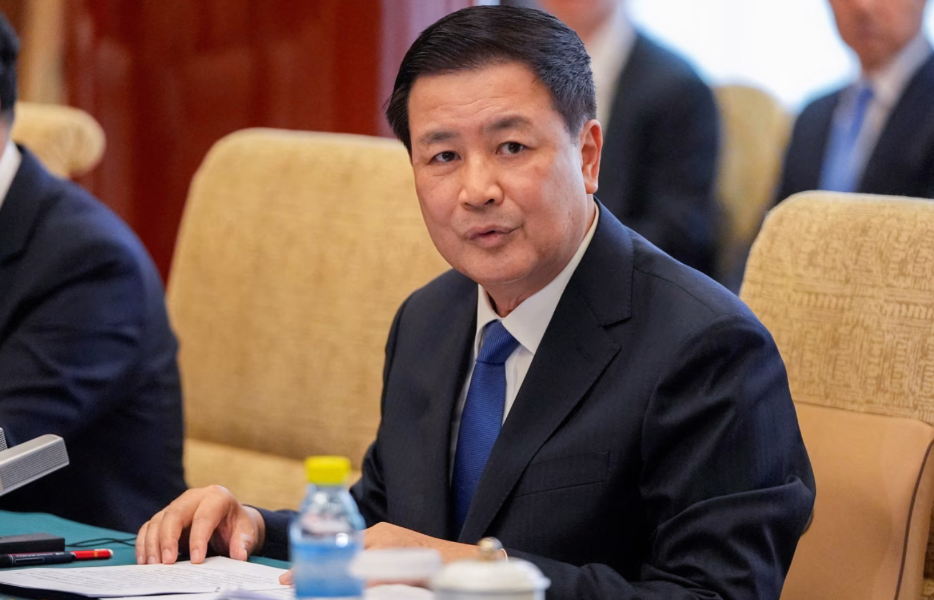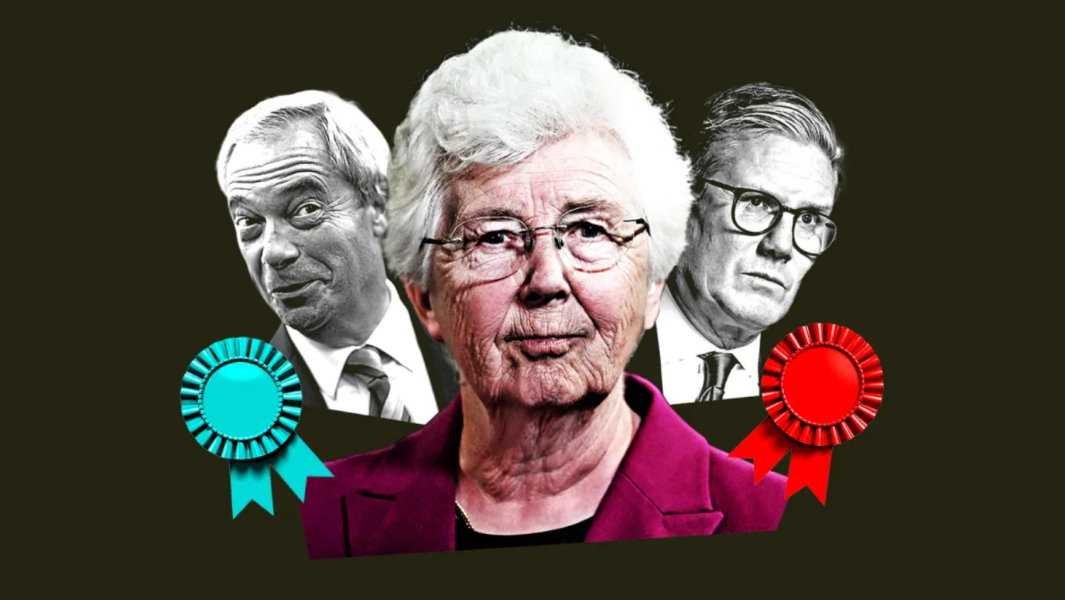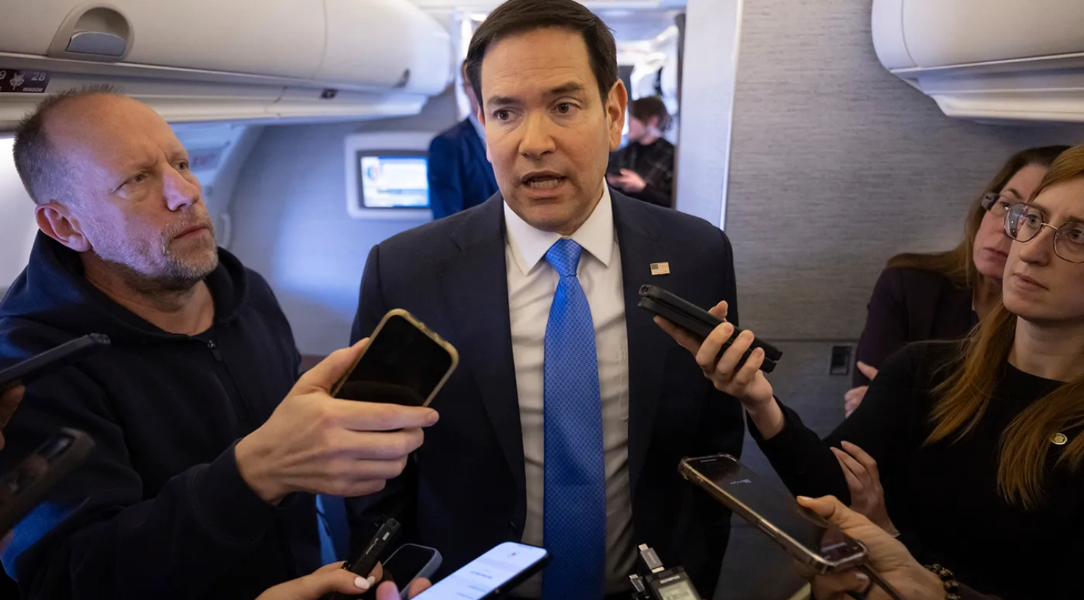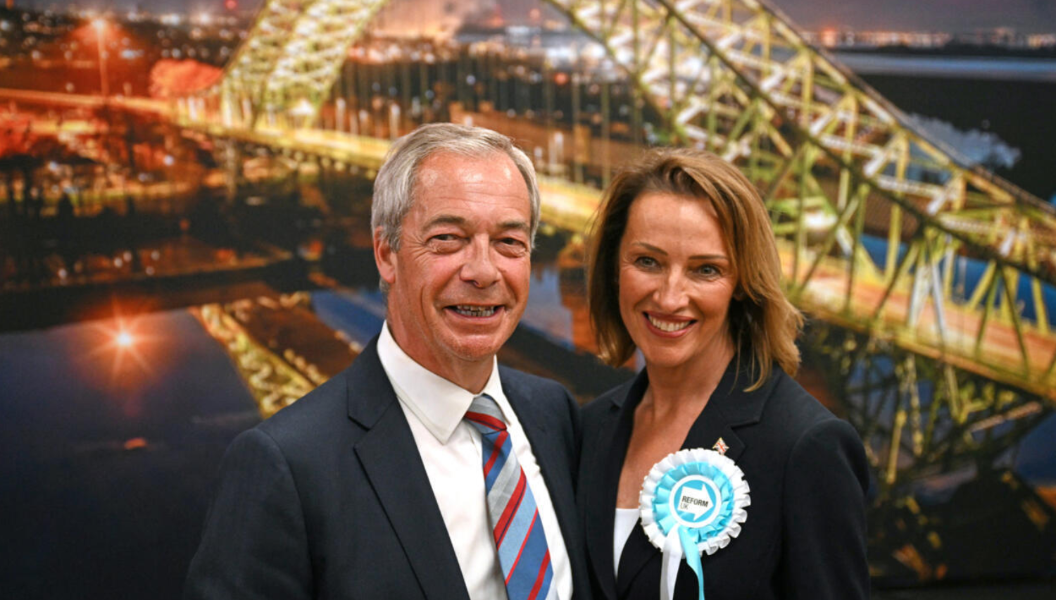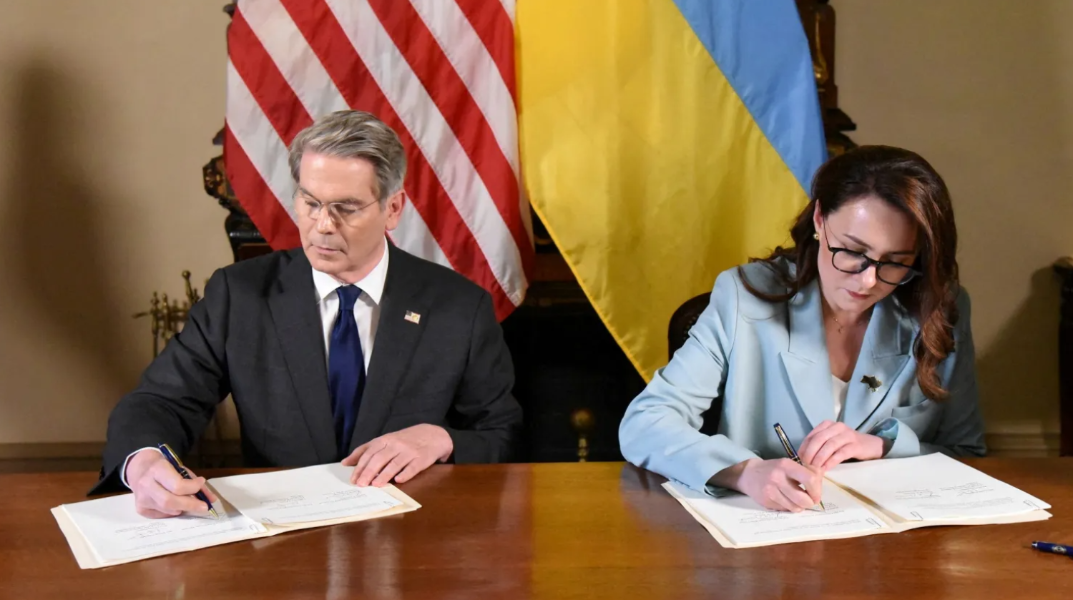-
Posts
10,730 -
Joined
-
Last visited
Content Type
Events
Forums
Downloads
Quizzes
Gallery
Blogs
Everything posted by Social Media
-
Labour Under Fire as Grooming Survivors Condemn Minister’s ‘Dog Whistle’ Remark Survivors of grooming gang abuse have fiercely criticised Labour frontbencher Lucy Powell after she referred to the scandal as a “dog whistle” issue during a BBC Radio 4 broadcast. Her comments have sparked widespread anger from victims, campaigners, and political opponents, with many accusing her of trivialising a deeply traumatic and ongoing national issue. Sarah Wilson, who was abused from the age of 11 by gangs in Rotherham and has since become a prominent campaigner, expressed her deep disappointment with Powell’s remarks. “This is what victims and survivors have been up against all these years. This is why we weren’t listened to. They never cared, and they never will. [They] totally dismissed survivors and our experiences of being groomed,” Wilson wrote in response to a video clip shared online. Former senior Labour adviser Tom Baldwin and Commentator and Reform UK supporter Tim Montgomerie discuss the reaction to senior minister Lucy Powell calling for grooming gang inquiries a "dog whistle" The controversy began when Powell, MP for Manchester Central, responded dismissively to a question posed by Reform UK supporter Tim Montgomerie on Any Questions, in which he asked about her views on a Channel 4 documentary about rape gangs. Interrupting, Powell retorted: “Oh, we want to blow that little trumpet now, do we? Yeah, OK, let’s get that dog whistle out.” Her comments were met with immediate backlash. Scarlett, a 20-year-old grooming survivor from Greater Manchester who featured in the documentary, and her father Marlon, said they felt retraumatised. “Scarlett and I, who shared our story in the documentary despite the emotional challenges, are outraged by Lucy Powell,” Marlon said. “We feel abused and disrespected once again, and we did not anticipate this kind of treatment from our government leaders. You have used us as a political tool for an excuse to be critical towards Conservatives rather than supporting a public inquiry. You should be ashamed.” Despite mounting pressure and calls for her resignation, including from within her own party, Powell will remain in post as Leader of the House of Commons. Health Secretary Wes Streeting confirmed on Sunday that she would not be stepping down, saying: “Yes. I think she made a genuine mistake, she’s owned up to it, she said sorry and we’ll move on.” He added that Powell was “mortified” by the reaction and deeply regretted her words. Powell released a statement on Saturday night attempting to clarify her position. “I would like to clarify that I regard issues of child exploitation and grooming with the utmost seriousness. I’m sorry if this was unclear. I was challenging the political point scoring around it, not the issue itself. As a constituency MP, I’ve dealt with horrendous cases,” she said. A source close to Powell also stated that she had privately reached out to victims in Manchester to offer support and would continue to engage with them. Nonetheless, criticism continued to mount from both within and outside the Labour Party. One Labour peer told The Telegraph, “Most people I’ve spoken to think she should be sacked. Nobody expects her to survive this, and nor should she. It’s outrageous.” Labour’s handling of grooming gang scandals has also come under renewed scrutiny. The party recently dropped its plan for five specific local inquiries in favour of a more “flexible approach,” allowing councils to determine how to address the issue. This could include full inquiries, but may also involve victim panels or internal audits. Meanwhile, the Government is awaiting the results of an audit led by Baroness Casey into the scale and nature of grooming and the demographic profile of the perpetrators. Prime Minister Rishi Sunak’s government has committed to further action, while Labour leader Sir Keir Starmer has so far resisted calls for a national statutory inquiry, despite support for one from senior Labour figures such as Andy Burnham and Dan Carden. For many survivors, Powell’s remarks represent a painful reminder of past failures. The reaction underscores the lasting wounds of institutional inaction and the sensitivity surrounding a scandal that continues to reverberate across the country. Adpated by ASEAN Now from The Telegraph 2025-05-05
-
Missile Strike Near Ben Gurion Airport Prompts Netanyahu to Vow Swift Retaliation Israeli Prime Minister Benjamin Netanyahu has pledged a forceful response following a missile strike near Ben Gurion Airport, Israel’s main international gateway. The missile, fired by Yemen’s Iran-aligned Houthi rebels, landed close to Terminal Three on Sunday morning, injuring four people and prompting widespread alarm. In a video message shared on social media, Netanyahu addressed the nation and its enemies with a stark warning: “We attacked in the past, we will attack in the future.” His statement made clear that retaliation was imminent and would not be limited to the Houthis alone. “Attacks by the Houthis emanate from Iran,” he said, adding that Israel would “respond to the Houthi attack, and to Iran at a time and place of our choosing.” Absolutely INSANE footage of the impact from a Houthi missile on Israel’s Ben Gurion airport. What would happen if this was JFK or Heathrow - do you think the Houthis would exist tomorrow? How about their Iranian backers? The missile impact occurred near a parking lot adjacent to the airport’s main terminal, according to Israeli authorities. Though the injuries sustained were not life-threatening, the explosion triggered panic among civilians and led to temporary flight suspensions. Emergency services reported that four individuals were wounded by the blast itself, while two others were hurt while rushing to nearby shelters. Unverified videos circulated online appeared to show motorists abruptly pulling over to seek cover as the missile descended, with one clip capturing a black plume of smoke rising ominously near the airport's perimeter. The Israel Air Force confirmed it was investigating why the projectile was not intercepted, despite the country’s robust missile defense systems. According to Israeli media citing defense officials, both the long-range Arrow system and the US-supplied Terminal High Altitude Area Defense (THAAD) battery failed to neutralize the incoming threat. This rare lapse has raised questions about vulnerabilities in Israel’s multi-layered air defense strategy. Yair Hetzroni, a senior Israeli police commander, took journalists to the impact site, where a deep crater marked the ground. “You can see the scene right behind us here, a hole that opened up with a diameter of tens of metres and also tens of metres deep,” Hetzroni said, emphasizing that the missile did not cause significant structural damage to the airport facilities. Although Ben Gurion Airport has since resumed operations, several international carriers including Lufthansa, Air France, and Delta cancelled their flights in and out of Tel Aviv for the day, reflecting ongoing security concerns. The Houthis later released a statement announcing their intention to impose “a comprehensive aerial blockade” on Israel, warning that further strikes targeting Israeli airports would follow in retaliation for Israel’s military activities in Gaza. This threat adds a new dimension to the group’s ongoing campaign of missile attacks in solidarity with Hamas. Israeli Defence Minister Israel Katz responded in kind, echoing Netanyahu’s message of deterrence: “Anyone who hits us, we will hit them seven times stronger.” The Houthi movement, known for its missile and drone attacks in the Red Sea region, has also drawn the ire of the United States and the United Kingdom, both of which have launched military strikes against the group in response to its maritime aggression. Despite Israel’s sophisticated defense network, Sunday’s successful missile strike marks a notable escalation, signaling that the Houthis may be refining their targeting capabilities. As Netanyahu convenes with top military and cabinet officials to determine the next steps, the country awaits a response that may reshape Israel’s approach to regional threats linked to Iran. Related Topics: UK Joins US in Strikes Against Houthis Amid Red Sea Shipping Threat Tragedy Strikes as Dozens of African Migrants Killed in US Air Raid on Yemen U.S. Destroys Houthi Fuel Terminal in Yemen 70 Killed according to Houthi officials Trump Warns Israel Would Lead Strike if Iran Refuses to Abandon Nuclear Ambitions Iran Withdraws Support from Houthis Amid Intensified US Airstrikes US deploys “overwhelming lethal force” against Houthis in Yemen Adpated by ASEAN Now from BBC | X 2025-05-05
-
Trump Declares He Won’t Seek Third Term, Dismisses Speculation Over 2028 Run Former President Donald Trump has stated unequivocally that he will not seek a third term in office, brushing aside speculation stirred by his own past remarks and merchandise marketed by his company. Speaking in an interview with NBC’s Meet the Press host Kristen Welker, which aired on Sunday, Trump said, “I'll be an eight-year president, I'll be a two-term president. I always thought that was very important.” At 78 years old, Trump had previously teased the idea of serving a third or even fourth term. At one point, he insisted he was “not joking” about extending his tenure beyond the constitutionally mandated two terms. However, he later said his statements were meant to troll the "fake news media". In the interview, which was recorded Friday at his Florida residence, Trump admitted that many people had encouraged him to consider remaining in office past 2029. “So many people want me to do it,” he said, just days after marking his first 100 days in his second term as president. He added that “to the best of my knowledge, you're not allowed to do it,” referring to a potential third term. “I don't know if that's constitutional that they're not allowing you to do it or anything else,” Trump said, pointing again to the flurry of speculation surrounding the “Trump 2028” merchandise. “There are many people selling the 2028 hat. But this is not something I'm looking to do,” he insisted. Trump went on to suggest that a future Republican leader could follow in his footsteps, naming Vice-President JD Vance and Secretary of State Marco Rubio as possible successors. The U.S. Constitution is clear on presidential term limits. The 22nd Amendment, ratified in 1951, states: “No person shall be elected to the office of the President more than twice.” To change that would require not only a two-thirds majority vote in both the House and Senate, but also ratification by three-quarters of the states—a nearly impossible political hurdle. Despite this, some Trump supporters continue to promote the idea that a constitutional loophole might permit a third term. When asked directly whether anyone had pitched such theories to him, Trump dodged the question. “In a capacity of being a big supporter, many people have said different things,” he replied. The interview also touched on the economy and Trump’s controversial tariff strategy, which has unsettled global markets and led to the first U.S. economic contraction since 2022. Still, Trump defended his actions. “Look, yeah. Everything’s OK,” he said, calling the current phase a “transition period.” He added, “I think we’re going to do fantastically.” Pressed on whether the economy could shrink further, he responded, “Anything can happen. But I think we’re going to have the greatest economy in the history of our country.” He also suggested that tariffs could become a permanent fixture of U.S. economic policy. “If somebody thought they were going to come off the table, why would they build in the United States?” he asked. When asked if Americans should prepare for fewer goods on store shelves as the trade war persists, Trump dismissed the concern. “No, I’m not saying that. I’m just saying they don’t need to have 30 dolls. They can have three,” he said. “They don’t need to have 250 pencils. They can have five.” While Trump’s declarations may quell some of the third-term rumors, his remarks and the behavior of his supporters ensure the conversation isn’t going away entirely. Adpated by ASEAN Now from BBC 2025-05-05
-
A post contravening our Community Standards has been removed: 27. You will not post any copyrighted material except as fair use laws apply (as in the case of news articles). Only post a link, the headline and three sentences from the article. Content in the public domain is limited to the same restrictions.
-
off topic post about the IRA and the Klu Kux Klan removed @MicroB
-
Weapons to Bleed, Not to Win: Ex-CIA Chief Criticizes West’s Reluctance in Ukraine Ralph Goff, a former CIA operations chief with decades of experience and a deep understanding of Russia and Ukraine, has sharply criticized the U.S. administration's approach to the war in Ukraine, saying the weapons provided were never intended to help Kyiv win—only to ensure it could continue fighting. Goff, who once headed CIA operations in Europe and Eurasia, believes the seeds of the current crisis were planted as far back as 2014 when Russian forces seized Crimea under Vladimir Putin’s direction. “I was trying to ring the alarm bell that the seeds of World War Three are being sown in the Donbas right now and we need to do something about it,” Goff said, recalling his efforts to alert Washington during his tenure. However, he said those warnings were not prioritized at the time. Earlier this year, Goff was poised to take over as the CIA’s chief of clandestine operations, a move aimed at reforming the agency’s often overly cautious approach. But the Trump administration reportedly blocked the appointment. “I think people close to the president thought, ‘Who is this guy, who does he think he is?’, and went and looked and saw I wasn’t one of their people and they said, ‘No, we don’t approve,’” Goff told The Times in an interview from Paris. He suspects his strong support for Ukraine may have played a role in the decision. “Politics definitely played a role there but, what are you going to do. They can pick who they want,” he added. At the time, Trump had already installed loyalists in key intelligence positions, including Kash Patel and Dan Bongino at the FBI and Tulsi Gabbard, a Putin sympathizer, as director of national intelligence. Meanwhile, Goff had retired from the CIA in October 2023 and made several trips to Ukraine, deepening his understanding of the conflict and Kyiv’s desperate need for decisive Western support. In Goff’s view, the war that erupted in full force in February 2022 could have been prevented or at least contained if the U.S. and its allies had supplied Ukraine with more powerful weapons earlier. Instead, he believes there was a conscious decision to avoid provoking Putin too far, fearing a nuclear response. “Had we equipped the Ukrainians at that time with proper weaponry, they might have been able to drive the Russians all the way out of the country. It didn’t happen. It set the stage for this longer, protracted, drawn out, meat grinder war that we are witnessing today,” he said. He accuses the Biden administration of hesitating at critical moments and allowing Putin’s nuclear threats to shape Western strategy. “[They] allowed themselves to be bamboozled by Vladimir Putin and his nuclear-sabre rattling. So they gave the Ukrainians this weaponry but they never gave them enough to win. They only gave them enough to bleed,” Goff stated. He even pointed to Putin’s obsessive fear of COVID-19 as evidence that the Russian leader is unlikely to risk a nuclear confrontation. “In my mind, people who are that concerned with their health are not about to play high stakes nuclear poker,” he added. Looking ahead, Goff believes Trump may attempt to charm or flatter Putin in an effort to pull him away from a strategic alliance with China. However, he warns that Putin, a seasoned intelligence operative, may try to manipulate Trump—though he is confident that such a strategy will ultimately fail. “Putin will eventually overplay his hand with the administration and show them where the problem lies and the problem is in Moscow not in Kyiv,” Goff explained. The consequences of inaction could be dire. Goff cited one Ukrainian official who warned him that without a meaningful resolution, the front lines will soon become an inescapable “death zone” stretching 20 to 50 kilometers. “Where you can’t move because there are so many drones in the air and robots on the ground and sensors and mines,” Goff relayed. “It will be an incredibly lethal environment.” Adpated by ASEAN Now from The Times 2025-05-05
-
- 1
-

-
Former UN Judge Lydia Mugambe Jailed for Enslaving Ugandan Woman in the UK Lydia Mugambe, a United Nations judge and former High Court judge in Uganda, has been sentenced to six years and four months in prison after being convicted of exploiting a young Ugandan woman as a domestic slave in Britain. The 50-year-old, who had been studying for a PhD in law at the University of Oxford, was found guilty at Oxford Crown Court of multiple charges, including conspiring to facilitate a breach of UK immigration law, facilitating travel with a view to exploitation, forcing someone to work, and conspiracy to intimidate a witness. The court heard that Mugambe used her elevated legal status to manipulate and control her victim, who cannot be identified for legal reasons. Despite claiming that she did not bring the woman to the UK, prosecutors established that Mugambe had actively conspired to lure the victim under false pretenses. Once in Britain, the woman was forced to work as Mugambe’s maid and provide unpaid childcare, while being obstructed from securing lawful, paid employment. Mugambe’s conduct was described in court as a calculated abuse of power. “Lydia Mugambe has exploited and abused [the woman], taking advantage of her lack of understanding of her rights to properly paid employment and deceiving her as to the purpose of her coming to the UK,” said Caroline Haughey KC, prosecuting. The court was told that Mugambe intended to obtain someone “to make her life easier and at the least possible cost to herself.” The jury was also presented with footage from Mugambe’s arrest by Thames Valley Police, during which she claimed diplomatic immunity and insisted she was not a criminal. “I didn’t come with her, she asked me because she has worked at my home before, she asked me,” Mugambe told officers. She also emphasized her status as a student, adding that she didn’t need anyone to work for her and stating, “I have a diplomatic passport.” Despite her protests, the court found that Mugambe had deliberately manipulated the young woman and used her authority to strip her of autonomy and dignity. The offences occurred while Mugambe was studying in the UK, but her high-level legal credentials and diplomatic connections did not shield her from prosecution. According to her UN profile, she had been appointed to the organization’s judicial roster in May 2023—just three months after police had been called to her address in Oxfordshire. The court also heard that Mugambe had not acted alone. She conspired with John Leonard Mugerwa, Uganda’s deputy high commissioner, to facilitate the woman’s travel to the UK. Their collaboration was part of a wider effort to control and exploit the victim once she arrived in Britain. Judge sentences reflected the severity of Mugambe’s abuse of trust and position, noting the “most egregious” way in which she had taken advantage of the woman. The conviction marks a stark fall from grace for a once-respected legal figure on the global stage and underscores the seriousness with which UK authorities treat human trafficking and modern slavery offences, regardless of the perpetrator’s status. Related Topic: UN Judge & Former Columbia Human Rights Fellow Convicted of Human Trafficking & Forced Labor Adpated by ASEAN Now from Sky News 2025-05-05
-
Beijing Considers Fentanyl Concessions to Ease U.S. Trade Tensions In a significant development that could mark the beginning of a thaw in the prolonged U.S.-China trade conflict, Beijing is weighing concessions on the issue of fentanyl as a potential olive branch to the Trump administration. The move is seen as a strategic effort to ease tensions and reinitiate trade negotiations between the two global powers, according to individuals familiar with the matter. Chinese leader Xi Jinping’s top security official, Wang Xiaohong, has recently been gathering information about what actions the Trump team expects from Beijing regarding the production and export of fentanyl precursors. These chemical components, widely manufactured by Chinese companies, are often sold online and trafficked to criminal networks in Mexico and other countries, where they are synthesized into fentanyl and smuggled into the United States. The deadly synthetic opioid has become a central issue for the Trump administration, which has frequently criticized China for its role in the ongoing U.S. opioid crisis. Wang, who serves as China’s minister of public security and holds a senior position within the State Council—China’s central governing body—is reportedly being considered as an envoy to the United States to discuss the matter directly with high-ranking Trump officials. Alternatively, sources indicated he may meet with U.S. representatives in a neutral third country. These plans are still under consideration and may change, but they reflect a broader attempt by Beijing to create a potential off-ramp from the current diplomatic and economic standoff. The proposed fentanyl cooperation comes as China's economy faces a confluence of internal and external pressures. The trade war with the United States, which has seen both nations impose sweeping tariffs and restrictions on each other's goods, has begun to seriously affect China’s already troubled economy. A property crisis that has dragged on for years, deflationary risks, and low consumer and business confidence have combined to create an atmosphere of economic unease. While Xi Jinping’s administration continues to emphasize self-reliance and central control, there is growing recognition that easing trade tensions with Washington could help relieve some of the immediate economic strain. Against this backdrop, China’s Commerce Ministry made a notable shift in tone on Friday, signaling a willingness to open trade talks with the United States. The ministry stated that it was considering initiating discussions aimed at halting the trade war, but also called on the Trump administration to “show sincerity” in its approach. This marks a departure from Beijing’s earlier stance, which had insisted that the U.S. first roll back its high tariffs before any negotiations could proceed. By potentially offering cooperation on fentanyl—a topic of urgent concern for the U.S.—Beijing is looking to create space for dialogue while avoiding the appearance of capitulation. The hope appears to be that this gesture could lead to reciprocal softening from the Trump administration, creating a diplomatic opening for both sides. While the discussions remain tentative, the signal from Beijing is clear: the costs of economic confrontation are growing, and there may be room once again for compromise. Adpated by ASEAN Now from CNN 2025-05-05
-
The local election results have sent shockwaves through the British political establishment, signalling a potential end to the traditional two-party dominance. Both Labour and the Conservatives have been left reeling, with the Reform Party making significant inroads into their respective voter bases. In Doncaster, Mayor Ros Jones should have been celebrating her fourth consecutive term in office. Instead, she used her narrow 698-vote victory over Reform as a platform to criticise Labour leader Sir Keir Starmer. Her frustration was clear as she denounced three controversial Labour policies: cuts to the winter fuel allowance, proposed welfare reforms, and the hike in the employers’ rate of national insurance. “I think national government needs to look and see what people are saying,” she said. “I think the results here tonight demonstrate that they need to be listening to the man, woman and businesses on the street and actually deliver for the people, with the people.” In stark contrast, Nigel Farage was jubilant in Runcorn & Helsby after Reform secured its first by-election win, narrowly beating Labour by just six votes. “Think about the swing, think about the change,” he proclaimed. “This is heartland Labour party, their vote has collapsed and much of it has come to us. That does away with the media narrative that somehow it’s us versus the Conservatives. We are smashing into the Labour vote in many parts of the north. It’s a phenomenal night.” The results underscore a dramatic shift in British politics. In Durham, once a Labour stronghold, Reform seized control of the county council. Reform also claimed the Hull mayoralty and made historic gains across the country, including in Staffordshire, where they rose from no representation to a clear majority. The Conservative Party’s performance was even more dismal. Having lost the Great Lincolnshire mayoralty to Reform and a host of local authorities, the Tories are watching their influence diminish rapidly. Former cabinet minister Sir Jacob Rees-Mogg suggested that the Tories and Reform are ideologically aligned, saying, “In terms of policy, there’s very little difference between the Conservative Party and Reform. It’s basically a matter of personality. I think we need to work together.” Labour, meanwhile, is scrambling to maintain control of the narrative. Starmer has pledged to “go further and faster” with his change agenda. Measures in the pipeline include a new migration white paper aimed at restricting foreign students’ ability to stay in the UK without graduate employment, and tougher rules on companies hiring foreign workers. Plans are also advancing for return hubs to deport failed asylum seekers to countries in the western Balkans, with Starmer expected to discuss further agreements during an EU summit in Tirana, Albania. Additionally, a strategic defence review is set to be published in the coming weeks. “I get it,” Starmer wrote in The Times. “The lesson of these elections isn’t that the country needs more politicians’ promises or ideological zealotry. It isn’t that there is some easy solution, as promised by our opponents. It’s that now is the time to crank up the pace on giving people the country they are crying out for.” But dissent within Labour is growing. Dan Carden, chair of the Blue Labour group, said the party has a “long way to go to restore trust” following unpopular benefit cuts. MP Rachael Maskell added, “People are desperate to find hope in politics and if Labour fails to provide and protect then people will look in other places.” Another minister bluntly concluded, “The hope that was promised has evaporated.” The upcoming parliamentary vote on welfare reform, expected in June, is shaping up to be a decisive moment. As Labour chair Ellie Reeves urged the party to accelerate reforms, one MP quipped, “What — over the cliff?” With Reform on the rise, Labour is preparing to intensify its scrutiny of Nigel Farage’s party, now seen as the main opposition force. Whether that approach can reverse the erosion of public support remains to be seen, but one thing is clear: Britain’s political landscape has shifted — perhaps permanently. Related Topics: Farage’s Political Earthquake Begins to Rattle Britain’s Foundations Adpated by ASEAN Now from The Times 2025-05-05
-
Deathbed Confession Links Hitler to Holocaust Orders in Unearthed Nazi Tapes A dying confession by one of Nazi Germany’s highest-ranking SS commanders has reignited the debate over Adolf Hitler’s direct role in the Holocaust. Bruno Streckenbach, a key architect of some of the regime’s worst atrocities, claimed in a series of audio recordings that Hitler personally issued the order to begin the mass extermination of Jews—an assertion long speculated by historians but rarely confirmed by those so close to the center of power. Though Streckenbach escaped post-war justice, avoiding prosecution despite his involvement in the killings of more than a million people, he offered his version of events in 1977 as he lay dying from heart disease and throat cancer. Over four hours of tape, recorded by journalist Gerd Heidemann, Streckenbach recounted his central role in organizing the SS Einsatzgruppen death squads and laid bare what he said was the origin of their orders. The tapes, made public for the first time by the Hoover Institution at Stanford University, provide a rare firsthand account of Nazi decision-making and explicitly name Hitler as the instigator of the genocide. “Heydrich was very quiet, very matter-of-fact,” Streckenbach recalled of his conversation with his superior, Reinhard Heydrich. “He sat on this large conference table that he had, he sat on the edge, and said: ‘Be quiet now, Streckenbach. Now you listen to me very carefully. Keep your mouth shut. Don’t get involved. We can’t do anything about it. It’s the order from the Führer, for us of all people. He’s chosen the SS to carry out this order. Neither the Reichsführer nor I could do anything about it.’” The revelation came as Streckenbach remembered his friend, Erwin Schulz, a fellow SS officer, expressing horror over the mass executions. “[Schulz] was trembling, trembling like I am now, and he says: ‘What do we do?’ And I say: ‘We can’t do anything at all. I can’t leave. You know — it was an order.’” Historian Thomas Weber of the University of Aberdeen, who uncovered the tapes, said the claim has considerable historical weight. “While Streckenbach clearly wanted to present himself in a better light, he had no reason to lie about this specific point at the end of his life,” Weber said. “There was no prosecution threat. It was a moment of personal reckoning.” The recordings are part of a vast archive of Nazi-related material amassed by Heidemann, a controversial figure whose career ended in disgrace after he was implicated in promoting the forged “Hitler Diaries” in 1983. Though dogged by accusations of Nazi sympathy and espionage for East Germany’s Stasi, Weber argued that Heidemann was driven more by obsession and theatrical flair than ideology. The archive, now held by the Hoover Institution, contains more than 100,000 photographs, 7,300 files, and approximately 800 tapes featuring interviews with notorious Nazis, including Klaus Barbie, the “butcher of Lyon.” Streckenbach stands out not only for his seniority but for his deep involvement in the SS apparatus, having risen to be Heinrich Himmler’s de facto deputy in the Reich Security Main Office. In the tapes, Streckenbach offered chilling insight into the mindset of the SS leadership. At one point, he said: “You either have to do it systematically — all 15 or 16 million Jews — or not at all, but you can’t [just] do a few hundred thousand.” He later reflected directly on Hitler’s culpability: “This is something that interests every one of us: was Hitler the initiator, did he know, did he give the order? Personally, I have to tell you: I simply can’t imagine that any man apart from or below Hitler would have started these things on his own initiative.” After being captured by Soviet forces in Latvia during the war’s final stages, Streckenbach spent a decade in a Soviet prison camp. He returned to Hamburg in 1955 and avoided further legal consequences, even as former subordinates were prosecuted for war crimes. Streckenbach suggested that many defendants had coordinated their testimony to shift blame and portray themselves as mere functionaries. “This really speaks to a very longstanding discussion in scholarship,” Weber said. “But here we have a first-person account of these lies, that these lies were happening.” The release of the tapes coincides with new polling that suggests growing German fatigue over continued confrontation with the crimes of the Third Reich. For the first time, more respondents said they wanted to “draw a line” under the past than those who supported ongoing remembrance. Nearly half expressed resentment that the atrocities committed against Jews are “still held against the Germans,” while only 28 percent disagreed. As the Streckenbach tapes emerge into public view, they challenge not only historical assumptions but also a society still grappling with how to reconcile memory, justice, and responsibility. Related Topic: Eighty Years On: Honoring VE Day and Confronting the Rising Tide of Holocaust Denial Adpated by ASEAN Now from The Times 2025-05-05
-
- 1
-

-
Transgender Swimmer Ana Caldas Sweeps Five Events at National Meet, Sparks Backlash Transgender swimmer Ana Caldas claimed five major victories at the U.S. Masters Swimming Spring National Championship held in San Antonio, Texas, last weekend, triggering a wave of controversy from women's sports advocates and activists. Caldas, who competed in the women’s 45-49 age group, won all five individual events she entered — doing so by margins that critics described as “unheard of” in competitive swimming. Dominating the field, Caldas finished the 50- and 100-yard breaststroke races with a staggering four-second lead over the next closest swimmers. In the 100-yard freestyle, she pulled ahead by three full seconds. Videos shared on social media showed Caldas well in front of her competitors, easily securing gold in multiple races. The footage quickly fueled online criticism. “He won them all,” tweeted Riley Gaines, a former collegiate swimming champion and vocal women’s rights activist, pointedly refusing to acknowledge Caldas’ preferred pronouns. “Real-life South Park episode,” Gaines added, referencing the satirical cartoon that has previously mocked issues around gender in sports. Beth Bourne, another outspoken activist, called the results “insanity,” emphasizing just how rare such margins are in top-level sprint events. “Anyone who competes in swimming at the national level knows this is unheard of in a 50-yard race where wins are often measured in a tenth or a hundredth of a second,” Bourne posted on X. Further backlash came from the Independent Council on Women’s Sports, which questioned the legitimacy of Caldas’ participation in the women’s division. A spokesperson for the organization, speaking to Reduxx, expressed frustration and disbelief over the results. “He’s just laughing at these women,” the spokesperson stated, echoing a sentiment shared by many critics who argue that transgender women retain a biological advantage over female athletes. Ana Caldas’ wins have reignited the ongoing debate about fairness and inclusion in women’s sports. Supporters of transgender athletes argue for the importance of inclusivity and respect for gender identity, while opponents argue that allowing transgender women to compete in female categories undermines fairness and equal opportunity for cisgender women. The controversy mirrors a broader cultural divide that continues to shape discussions in athletics, education, and public policy. While U.S. Masters Swimming, the governing body of the event, has not commented publicly on the uproar surrounding Caldas’ victories, the incident has added fuel to an already heated national conversation. As debate continues, Caldas' success and the reaction it sparked underscore the unresolved tensions between inclusion and competitive equity — tensions that are increasingly playing out in swimming pools, track fields, and sports arenas across the country. Adpated by ASEAN Now from NYP 2025-05-05
-
Survivors of Childhood Sexual Abuse Left Without Redress as UK Shelves Compensation Scheme Survivors of child sexual abuse across England and Wales have been dealt a devastating blow after the UK government quietly abandoned plans to implement a national compensation scheme, citing financial constraints. The scheme, once promised by the previous Conservative administration, was one of the key recommendations of the Independent Inquiry into Child Sexual Abuse (IICSA). While similar redress programmes in Scotland and Northern Ireland have already distributed hundreds of millions of pounds to victims, the Home Office has now confirmed that it will not proceed with the proposal for the rest of the UK. In a recent report titled Tackling Child Sexual Abuse: Progress Update, the Home Office stated, “In the current fiscal environment, this recommendation is very difficult to take forward.” The report also acknowledged that the government “is not currently taking forward any further steps on the IICSA proposal for a separate, national financial redress scheme for all survivors of child sexual abuse.” For many survivors, the decision marks the end of a long and painful pursuit of justice. Among them is 71-year-old Marie, who endured alleged sexual, physical, and emotional abuse at Greenfield House Convent in St Helens, Merseyside, between 1959 and 1962. She was just six years old when she arrived at the convent. “As soon as I arrived, my hair was cut off, my name was changed, and I experienced regular beatings from the nuns and students,” she recalled. Marie claims a nun orchestrated acts of violence, including a horrific incident where she was held down with her legs “spread-eagled” and sexually abused with a coat hanger. Although Merseyside Police investigated the allegations, the suspect died in 2016 before charges could be brought. Marie received an apology from the Catholic body that ran the home, but her civil claim for damages was dismissed for being filed too long after the abuse occurred. Under existing law, victims had to make civil claims before the age of 21 unless they could prove a fair trial was still possible despite the time delay. Campaigners long argued that this statute of limitations was unjust, given that survivors take an average of 26 years to come forward. In February, ministers announced changes to the 1980 Limitation Act, which could allow more survivors to seek justice through the courts. However, Peter Garsden, president of the Association of Child Abuse Lawyers, expressed concern about the practical impact of those changes. “It takes between three and five years for a civil case to get to trial,” he explained. “Claimants can end up losing if you go through that process. Whereas the Redress Scheme would be quicker, much more straightforward, and much more likely to give justice to the victims.” Jimbo, another survivor, spent 13 years pursuing legal action over the abuse he suffered at St Aidan’s children’s home in Cheshire. His case went to the High Court twice and the Court of Appeal three times. In the end, he received just £10 to cover his bus fare to court. A Lord Justice of Appeal even stated that he believed the abuse occurred, but Jimbo’s claim was denied due to the time limit. Neither Marie nor Jimbo is likely to benefit from the removal of the time restrictions for personal injury claims. For victims like them, the now-abandoned National Redress Scheme represented perhaps their final hope for justice. “The money is about justice and about all the other people who have had to suffer this abuse,” said Marie. Campaigners are continuing to urge the government to reverse its decision and honour the recommendations of the IICSA, warning that without a dedicated redress scheme, countless survivors will remain unheard and uncompensated. Adpated by ASEAN Now from Sky News 2025-05-05
-
Market Defies Gloom: Stocks Surge as Recession Fears Simmer Despite persistent warnings from top economists about a looming recession, Wall Street continues its upward climb, with investors largely shrugging off tariff anxieties and placing faith in economic resilience. The S&P 500, after a sharp downturn spurred by the unveiling of new tariffs, has now regained significant ground, down just 3.3% for the year. Optimism around potential tariff rollbacks and a robust job market have fueled this rally, with the index recently completing a nine-day winning streak—its longest since 2004—gaining about 10% in that span. Still, the optimism seems at odds with forecasts from some of the market’s most respected voices. Goldman Sachs estimates a 45% chance of a recession within the next year. Apollo Global Management’s top economist raised that alarm even louder, pegging the likelihood at 90%. “There’s zero chance of an economic slowdown priced in,” said Bob Elliott, chief executive of Unlimited Funds, suggesting the market may be overconfident. Although President Trump has already scaled back some tariffs, the potential long-term effects of sustained trade levies—especially on Chinese imports—continue to concern economists. The knock-on impact could ripple across consumer spending, business investment, and employment. “With the amount of uncertainty still out there, the equity market rallying back here feels like they’re whistling past the graveyard,” warned Tom Porcelli, chief U.S. economist at PGIM Fixed Income. Investors are looking ahead to Federal Reserve Chair Jerome Powell’s upcoming remarks following the Fed’s May meeting for additional insight into the central bank’s economic outlook. Tariffs on Chinese goods pose a specific threat to the economy by potentially triggering stagflation—a toxic mix of rising prices and slowing growth. Although consumer confidence and small-business optimism have both slumped according to recent surveys, spending habits have yet to show a major shift. In fact, a recent report indicated inflation-adjusted household spending jumped 0.7% in March, possibly due to pre-tariff buying. Visa reported no signs of a pullback in card spending through April 21. “I’m watching that credit-card data like a hawk because that will be one of the early warning signals,” said Larry Adam, chief investment officer at Raymond James. “I think we’re past peak uncertainty with tariffs and now we’re at peak uncertainty with the economy.” Goldman Sachs economists recently projected that the effects of tariffs could take two to three months to manifest in inflation data, with a dip in consumer spending expected to follow. Reflecting growing concern, Vanguard has revised its forecast for U.S. economic growth this year down to below 1%, citing trade tensions and policy instability. It now anticipates 4% inflation by year’s end, up from an earlier projection of 2.7%. “The notion that we will just go back to where we were before without any disruption to the economy is certainly on the optimistic side,” said Kevin Khang, senior international economist at Vanguard. While major tech firms with strong earnings have helped lift the overall market, other sectors tell a more cautious story. Defensive sectors like utilities and consumer staples are outperforming, while more economically sensitive areas such as energy and discretionary consumer goods are lagging. Meanwhile, traders in interest-rate futures are betting on at least three rate cuts from the Federal Reserve this year, signaling expectations that monetary policy will need to support a slowing economy. On Kalshi, a prediction market, the probability of a recession this year has jumped to 63%, up from about 40% in March. Surprisingly, this stock rally has persisted even as the 10-year U.S. Treasury yield remains elevated—a benchmark that typically pressures equity valuations. Though the yield has dipped slightly since April, it remains relatively high compared to mid-March levels. The so-called “excess CAPE yield,” a measure of the reward investors receive for owning stocks instead of Treasurys, stood at just 1.8% at the end of April. That’s roughly half the 50-year average, barely higher than March’s 1.7%, and still below levels seen last September. Adpated by ASEAN Now from Wall Street Journal 2025-05-05
-
Trump’s Rubio Strategy Is No Joke — It’s a Strategic Power Shift The internet has been buzzing with jokes and memes about President Trump appointing Marco Rubio to nearly every foreign policy-related role in government. From Secretary of State to presumed overseer of USAID and whispers of him heading up more, satirists have had a field day imagining what’s next — a seat on the Supreme Court or a turn as Fed Chair. But while the online mockery is abundant, the underlying strategy reveals something more serious and deliberate than most pundits acknowledge. For those who have worked within these agencies, Trump’s move to consolidate foreign policy functions under Rubio isn’t as outlandish as it seems. In fact, it may be a long-overdue solution to a fundamental structural flaw that has consistently hindered effective U.S. foreign policy. By putting one person in charge of an array of foreign policy and development entities, Trump isn’t elevating Rubio so much as fixing a fragmented system that has historically lacked clear lines of accountability. As someone directly involved in the shutdown of the Overseas Private Investment Corporation (OPIC) and the launch of the U.S. International Development Finance Corporation (DFC), I saw firsthand how siloed mandates and overlapping authorities bogged down progress. Even simple tasks were complicated by the fact that no one was quite sure who was in charge. We constantly had to ask, or be asked, whether a project fell under development or foreign policy, and which agency or congressional committee had the final say. At OPIC, we were often stuck navigating conflicting guidance from State, USAID, the National Security Council, and even Treasury — each asserting partial oversight. These ambiguities delayed eighteen-month investment deals that were crucial in countering China’s Belt and Road Initiative. The DFC, created under Trump’s first term, was designed to improve this by doubling investment capacity and incorporating new tools. But it, too, needed better alignment between foreign policy and development — a relationship historically strained by bureaucratic friction. Trump’s recent appointments are a direct response to these inefficiencies. By centralizing diplomatic, development, and strategic decision-making under a unified command, Trump is forcing agencies that previously operated with near-autonomy to align with one voice and one strategy. Non-profits and intermediaries that thrived in the gray areas between agencies — often by virtue of insider knowledge — may lose influence, but in their place comes a cleaner, more transparent chain of command. There are costs, of course, particularly for those in Washington who built careers on managing the chaos and fragmentation. But for the American people, this new structure provides a single point of accountability. When policies falter or implementation fails, the question of who’s responsible will be much clearer. Congress benefits too: lawmakers now have a centralized figure to hold to account, and potentially, this could encourage a more streamlined and unified budgeting process for foreign policy priorities. Trump’s restructuring is not about seizing more power for its own sake. Rather, it’s about restoring presidential leadership over foreign policy — something clearly rooted in the Constitution and reflective of electoral will. As the world grows more competitive and the stakes in global affairs rise, the United States can no longer afford the bureaucratic paralysis of overlapping mandates and unclear chains of command. By handing Rubio the keys to so many agencies, Trump hasn’t created chaos — he’s cleared it. And in doing so, he’s ensured that America now speaks with one voice abroad — his own. Adpated by ASEAN Now from The Hill 2025-05-05
-
UDATE another 3 Iranians arrested in a separate incident Eight arrested in two separate anti-terror operations Eight men have been arrested in two separate counter-terrorism police investigations. Five were arrested at various locations around England on Saturday as part of a "pre-planned" investigation into a plot to "target a specific premises", the Metropolitan Police said. Four - two aged 29, one aged 40 and one aged 46 - are Iranian nationals. Police said the nationality and age of the fifth was still being established. Three other men, all Iranian, were arrested in London on Saturday as part of a separate counter-terror police investigation. Police said the two operations were not connected. Home Secretary Yvette Cooper thanked police and security services "for the action they have taken to keep our country safe". She said: "These are serious events that demonstrate the ongoing requirement to adapt our response to national security threats." In the operation in which five men were arrested, four were detained under the Terrorism Act. The fifth man was arrested under the Police and Criminal Evidence Act (Pace). All five were arrested on suspicion of preparation of an act of terrorism. The men were arrested in Swindon, west London, Stockport, Rochdale and Manchester and remain in police custody. Police said the investigation related to a suspected plot to target a "specific premises". The "affected site", which it did not name, has been made aware and is being supported by police, the Met Police added. Adpated by ASEAN Now from BBC 2025-05-04
-
Five Arrested in Suspected Terror Plot as Counter-Terrorism Officers Raid Multiple UK Locations Five men have been taken into custody on suspicion of preparing a terrorist act, in a case that is now under intense investigation by the Metropolitan Police’s Counter Terrorism Command. Four of the individuals arrested are Iranian nationals. The arrests, which took place on Saturday, are part of what police have described as a fast-moving and ongoing operation related to a suspected plot targeting a specific location in the UK. Authorities have confirmed that the men are being held in custody while officers continue their enquiries. In a statement released shortly after midnight, police indicated that they had contacted the site potentially targeted in the alleged plot. “Officers have been in contact with the affected site to make them aware and provide relevant advice and support, but for operational reasons, we are not able to provide further information at this time,” the force said. Search operations connected to the case are now underway across several locations, including Greater Manchester, London, and Swindon. The police have released information about the men arrested: a 29-year-old man in the Swindon area, a 46-year-old man in west London, a 29-year-old man in Stockport, a 40-year-old man in Rochdale, and another man, whose age has not been confirmed, in Manchester. Commander Dominic Murphy, who leads the Metropolitan Police's Counter Terrorism Command, emphasized the seriousness and complexity of the case. “This is a fast-moving investigation and we are working closely with those at the affected site to keep them updated,” he said. “The investigation is still in its early stages and we are exploring various lines of enquiry to establish any potential motivation as well as to identify whether there may be any further risk to the public linked to this matter.” He also acknowledged the concern such events can provoke within the public and urged vigilance. “We understand the public may be concerned and, as always, I would ask them to remain vigilant and if they see or hear anything that concerns them, then to contact us,” Murphy stated. The Commander expressed gratitude for the cooperation of local officers and police forces nationwide, adding, “We are working closely with local officers in the areas where we have made arrests today and I'd like to thank police colleagues around the country for their ongoing support.” This is a developing story, and authorities have indicated that further details will be released as the investigation progresses. Adpated by ASEAN Now from Sky News 2025-05-04
-
Prince Harry’s latest BBC interview has struck a deeply emotional chord and could be remembered as one of the defining moments in the ongoing drama between him and the British Royal Family. What began as a discussion about legal battles over security swiftly transformed into a highly personal revelation—a torrent of long-held frustrations and sorrow pouring out in real time. The conversation opened with Harry addressing his recent legal defeat concerning the downgrading of his UK security status. He appeared visibly shaken by the ruling, and the conversation quickly took a far more intimate turn. His words carried a raw emotional weight, revealing the deep fracture in his relationship with his father. “He won’t speak to me because of this security stuff,” Prince Harry said, his voice heavy with hurt. He added a haunting reflection: he doesn’t know “how much longer my father has,” an admission that laid bare the emotional cost of their estrangement. This wasn’t just a comment on legal proceedings—it was a window into the royal family’s internal disarray. The prince’s anguish over his children’s lack of connection with their relatives in the UK was palpable. He described himself as “gutted” and “devastated,” lamenting that his visits to Britain now revolve only around “funerals and court cases.” There was a sense of someone caught between wanting to be heard and wanting reconciliation. Prince Harry didn’t hold back, suggesting that his reduced security arrangements were not just a bureaucratic decision but part of a deeper family rift. He implied that the Royal Household may have played a role in influencing the decision, using security as a means of control. But for all his grievances, he extended a heartfelt call for peace. “There’s no point continuing to fight any more. Life is precious,” he said, offering what felt like a grand gesture of reconciliation. Still, he made clear that the “sticking point” in any potential reconciliation remains his security status when in the UK. He appealed not just to King Charles, but also to the Prime Minister and Home Secretary, in an effort to find resolution. Yet the courts remain unmoved. Sir Geoffrey Vos, the judge who ruled against him, stated that Prince Harry’s “sense of grievance” could not substitute for a legal argument. The decision was upheld on the basis that Harry’s circumstances had changed—he was no longer a working royal and did not reside in the UK. Buckingham Palace responded with a tone of fatigue, almost parental in its exasperation. “All of these issues have been examined repeatedly and meticulously by the courts, with the same conclusion reached on each occasion.” The Palace hinted that the King could not interfere with matters under judicial or governmental review. The Home Office echoed satisfaction with the court’s decision, saying the UK’s security system is “rigorous and proportionate.” Meanwhile, the public and the media will likely continue replaying Harry’s vulnerable moments. His emotional honesty, laid bare for the world to see, will leave an indelible mark. At a time when the Royal Family prepares to take part in solemn VE Day 80 commemorations, Harry’s accusations and confessions will still be fresh in the public consciousness. It raises a complex question: how can the monarchy present a united front to the world while these very public fractures remain unresolved? Prince Harry’s candid reflections left a powerful impression. As he looks back toward a homeland that feels both familiar and foreign, the real question may be how that homeland—and his family—will look back at him. Adpated by ASEAN Now from BBC 2025-05-04
-
This topic is contravening forum and community standards rules. //CLOSED// View Political Soapbox rules https://aseannow.com/topic/1330740-welcome-to-the-political-forum/
-
@BangkokHank a nonsense Holocaust denial conspiracy post and follow ups have been removed. Enough of that inflammatory rhetoric or you will also be removed. @Tug a post attempting to bring Trump into the topic has been removed
- 82 replies
-
- 13
-

-

-

-

-

-
Farage’s Political Earthquake Begins to Rattle Britain’s Foundations A tremor long promised by Nigel Farage is now unmistakably shaking the pillars of British politics. After a dramatic night of local elections, the political landscape appears to be shifting in a way that could reshape the future of the two-party system. Reform UK, the party Farage has tirelessly promoted as a force for disruption, has delivered a seismic blow by winning votes from both Labour and the Conservatives, and most notably, capturing the Runcorn and Helsby by-election—a once-safe Labour stronghold. This result marks a turning point. The North West victory is more than just a local upset; it represents a record-breaking and symbolic breakthrough for Reform UK, signalling the maturation of a party often dismissed as a fringe movement. Reform UK is now challenging the political orthodoxy, not just nibbling at the edges of Conservative support but making inroads into Labour’s traditional base. Across the country, Reform UK posted vote shares exceeding 40% in several contests—double their share from the last general election. They managed to take a seat from the Liberal Democrats and pushed both major parties to the brink in multiple contests. But it was their victory in Runcorn and Helsby—the 49th-safest Labour seat in the UK—that truly shook expectations. The win was the result of strategic focus, with Nigel Farage and party chairman Zia Yusuf dedicating considerable resources and personal presence to the campaign. Their ground game proved decisive. In stark contrast, Labour leader Sir Keir Starmer did not visit the constituency once during the campaign. As the dust settles, Downing Street may be wondering if a single prime ministerial appearance could have swung those crucial six votes needed to avert defeat. The implications of Reform UK's triumph are profound. At the last general election, over 150 constituencies were lost by the Conservatives because the number of Reform UK votes exceeded the margin of defeat. Now, Labour faces a similar threat. Reform UK has proven they can disrupt both left and right, putting Britain’s traditional political parties on high alert. Labour has already begun to adjust in response—cutting the foreign aid budget to bolster military spending and pledging reductions to Whitehall operations. Yet there is growing evidence that such repositioning may alienate parts of Labour’s base. In several council by-elections, Green Party gains suggest a drift of left-leaning voters who feel Labour no longer speaks for them. Reform UK’s encroachment is not merely a threat to the right or the centre, but a signal of political realignment that could erode old loyalties. For the Conservatives, the challenge is equally sharp. The idea of a non-aggression pact on the right now seems far-fetched, especially as Reform UK’s success in Labour territory raises questions about their ideological placement. With victories that transcend traditional partisan lines, Reform UK is positioning itself not just as an alternative party of the right, but as a broader populist force. The truth is, no one yet knows how far-reaching these changes will be. What is clear is that Nigel Farage’s long-anticipated political earthquake is no longer a warning—it is happening. British politics is entering a new era, and the path ahead is more uncertain, volatile, and contested than ever. Adpated by ASEAN Now from Sky News 2025-05-03
-
US Job Market Remains Resilient Amid Tariff Tensions Despite increasing uncertainty triggered by a surge in import tariffs, the U.S. job market remained robust in April, adding 177,000 new positions and keeping the unemployment rate steady at 4.2%, according to the latest data from the Labor Department. The stronger-than-expected hiring numbers came during a month when financial markets were rattled by new trade policies and rising anxiety about the country’s economic outlook. This resilience in employment has continued to confound many analysts, particularly given the broader economic pressures of high inflation and elevated interest rates. The job gains last month exceeded expectations, offering a glimmer of hope that the United States might navigate through trade tensions without tipping into a serious downturn. “The key message coming from the totality of the data this week is that the U.S. economy was fundamentally strong through the first week of April, however, the outlook remains very uncertain,” said Olu Sonola, head of U.S. economic research at Fitch Ratings. He acknowledged that job gains in earlier months—January and February—were revised downward, but still called the latest report solid. The Labor Department’s employment surveys were conducted just days after President Trump introduced sweeping tariffs referred to as "Liberation Day" measures. These tariffs elevated the average U.S. import tax rate to levels not seen in over a century, throwing a curveball into business planning and investor confidence. While many firms have responded with caution, waiting to see if Trump's trade agenda materializes into formal agreements, the labor market appears to have largely shrugged off the policy shock for now. Job growth was led by sectors such as healthcare, transportation, and warehousing, signaling continued strength in essential services and logistics. Federal government employment shrank, aligning with the Trump administration’s stated goal of reducing federal spending, but this decline was balanced out by job increases at the local government level. However, not all sectors fared well—manufacturing and retail payrolls declined, reflecting possible early tremors from tariff-related disruptions. Wage growth remained strong, with average hourly earnings rising by 3.8% over the past year. That level of income growth may help sustain consumer spending, a key driver of the U.S. economy. Seema Shah, chief global strategist at Principal Asset Management, interpreted the figures as a signal that the Federal Reserve is under no immediate pressure to lower interest rates. “Why would the Fed start cutting rates right now when the unemployment rate is near record lows, the consumer is still fairly robust, and inflation is running above target?” she said. Looking ahead, Shah warned “The economy will weaken in the coming months but, with this underlying momentum, the U.S. has a decent chance of averting recession if it can step back from the tariff brink in time,” she added. Adpated by ASEAN Now from BBC 2025-05-03
-
Eighty Years On: Honoring VE Day and Confronting the Rising Tide of Holocaust Denial Next week marks the 80th anniversary of Victory in Europe Day, a pivotal moment in world history that signaled the end of World War II in Europe and the unconditional surrender of Nazi Germany on May 8, 1945. VE Day remains a global symbol of the triumph of freedom over tyranny, a time to remember the millions who sacrificed their lives to defeat fascism. But as the world prepares to commemorate this historic milestone, a darker, more insidious threat has emerged alongside it: the resurgence of Holocaust denial and the distortion of historical truth. In recent years, fueled by misinformation, conspiracy theories, and unregulated digital echo chambers, Holocaust denial and antisemitism have found new life on social media and fringe online platforms. With the number of living Holocaust survivors dwindling and firsthand accounts growing rarer, preserving the truth has become a critical responsibility. The urgency has only increased in the aftermath of the October 7 terrorist attacks, which have further intensified the spread of antisemitic rhetoric and revisionist narratives. To better understand this troubling trend, it’s important to revisit a defining moment in the fight against Holocaust denial — the 2000 libel trial of David Irving versus Penguin Books and American scholar Deborah Lipstadt. In her book Denying the Holocaust, Lipstadt identified Irving as a Holocaust denier, a claim he vehemently rejected by suing her and her publisher in British court. What followed was a landmark legal case that essentially put the Holocaust itself on trial. The proceedings in London drew international attention as both sides presented extensive historical evidence. Ultimately, the court found in favor of Lipstadt, declaring Irving to be not only a Holocaust denier but also a deliberate falsifier of history and a neo-Nazi sympathizer. The verdict was a resounding victory for historical truth and academic freedom. It validated the importance of resisting distortion and reaffirmed that facts must be defended — particularly when the consequences of denial are so grave. Deborah Lipstadt, now serving as the U.S. State Department’s Special Envoy to Monitor and Combat Antisemitism, recently joined The Daily T podcast to reflect on that experience. Alongside her was Anthony Julius, the British lawyer who led her defense. Together, they revisited the trial’s emotional and intellectual toll and emphasized how the fight against denial remains as vital today as it was 25 years ago. Lipstadt explained the broader significance of the trial, stating that “this was never about me — it was about preserving the integrity of history.” Julius echoed that sentiment, noting, “We had to demonstrate that truth was not something to be negotiated. The stakes were — and still are — existential.” As the world gathers to honor the sacrifices made in the fight against Nazism, the lessons of the past must not be diluted. The commemoration of VE Day is not just about remembering victory — it is about renewing our collective commitment to truth, justice, and the memory of those who perished. In an era where disinformation moves faster than ever, standing firm against Holocaust denial is a duty owed not just to history, but to future generations. The conversation with Lipstadt and Julius serves as a poignant reminder: history must be protected, and lies must be challenged. The 80th anniversary of VE Day is not only a moment for reflection but also a call to action in the ongoing battle for truth. Adpated by ASEAN Now from The Telegraph 2025-05-03
-
Trump Greenlights $50 Million in Military Aid to Ukraine Following Landmark Minerals Agreement President Donald Trump has approved a $50 million military aid package to Ukraine, marking his first such authorization since taking office. The announcement follows the signing of a significant minerals and energy deal between Washington and Kyiv, a move both sides describe as pivotal to future economic and military cooperation. The agreement, finalized during a visit to Washington by Ukraine’s economy minister, comes just days after Trump and Ukrainian President Volodymyr Zelensky held a brief meeting at the Vatican. The minerals deal outlines a profit-sharing arrangement for the future extraction and sale of Ukraine’s vast mineral and energy reserves. Trump had previously framed such a deal as essential compensation for the extensive American aid provided to Ukraine, while Kyiv views it as a pathway to secure continued U.S. support in its struggle against Russian aggression. Shortly after the deal was signed, the White House notified Congress of its intent to authorize “the licence for the export of defence articles, including technical data, and defence services to Ukraine in the amount of $50 million or more.” This move ends a prolonged pause in U.S. military support, with Trump having authorized no new aid since assuming office in January. The previous halt of this magnitude occurred in January of the prior year during a congressional impasse over funding. Since the beginning of the Russian invasion in February 2022, the United States has committed over $65 billion in military assistance to Ukraine. The last major delivery—a $500 million weapons package—was announced by President Joe Biden before he left office. While the direct connection between the new military aid and the minerals deal remains officially unconfirmed, one Ukrainian government insider remarked, “I think it’s significant as a first step of goodwill from Trump after we did what he wanted from us.” President Zelensky described the minerals deal as “historic” and emphasized that it represented a “truly equal agreement.” He linked the development to his conversation with Trump in Rome, stating, “It was the first result of our meeting in the Vatican. We are looking forward to the other results of our conversation.” In response to the developments, Dmitry Medvedev, former Russian president and current deputy chairman of Russia’s national security council, accused Trump of forcing Ukraine to “pay for military supplies with the national wealth of a disappearing country.” On Telegram, he wrote that the agreement meant “they will have to pay for military supplies with the national wealth of a disappearing country.” Russian state media outlet Tass warned of the long-term implications for Moscow. Sergey Oznobishchev, a military-political analyst at the Primakov Institute, stated, “Ukraine is falling into the hands of the United States, which will increasingly establish itself there. The very fact of Washington’s legal presence next to us creates potential problems for us.” Scott Bessent, the U.S. Treasury secretary, heralded the agreement as the beginning of a “historic economic partnership” and declared that it “signals clearly to Russia that the Trump administration is committed to a peace process centred on a free, sovereign and prosperous Ukraine.” Bessent added, “President Trump envisioned this partnership between the American people and the Ukrainian people to show both sides’ commitment to lasting peace and prosperity in Ukraine. And to be clear, no state or person who financed or supplied the Russian war machine will be allowed to benefit from the reconstruction of Ukraine.” According to President Zelensky, about one-third of Ukraine’s military hardware since the Russian invasion has come from the United States. Ukrainian lawmaker Oleksandr Merezhko, chairman of the parliamentary foreign affairs committee, described the minerals deal as a “win-win” scenario. “The more American economic interests are in our economy, the better chances are for our survival,” he said. “I hope that this deal will open the way for Ukraine to receive more military assistance from the United States.” Adpated by ASEAN Now from CNN 2025-05-03



